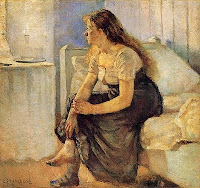
Be careful what you wish for, we often say, and there is a grain of truth in this statement. In many cases, we are either let down or disappointed when we finally reach our goal. It is part of human nature and make-up, I suppose. We spend, for example, weeks, months, years in order to reach our destined objective, and then we may enjoy it for a bit, but soon it wears off like any old hat, and we are left with our desire for more and evermore, for variety or more of the same but in improved presentation.
Yet at the same time, they often say that it is the journey that counts; it is the path that is more important than the destination itself since the destination always leaves a lot to be desired and ends up being a sham anyhow. This may be why the happiness of people who suddenly become rich by winning the lottery or via an inheritance may not be as long-lasting as those who have worked hard to get there and who “make” it through their own efforts.
Whether it is money that you are chasing or love or a family or your retirement, when it comes down to it, you will never be fully satisfied with the results. Commonplace boredom will ensnare you sooner or later, and there seems to be no immunization against it. Or is there?
The driving power is indeed the journey itself but in the shape of our desire. Now desire is something that lasts. And desire is constantly moving us towards action; it is our constant craving. It is desire that makes the object worth pursuing in the first place.
If you are in love with somebody, and you desire them, you place a high value on them, and hence you double or triple your efforts to conquer this person. It is your desire that makes her beautiful. Without it, she would be just an ordinary girl, but your longing has made her into a shiny star, a regal beauty queen, a unique person in the world.
Although there is often a consensus of what constitutes beauty, namely what the majority of the “experts” of the time, such as media and peers, agree upon, I am more interested in the individual's perception of the object or the person in question. We can hide desire from other people's views, yet it burns inside us; it gives us energy during the day and robs our sleep at night. It is the stuff that furnishes us with poetry.
And strangely, paradoxically, it finds its most beautiful expression in its failure to achieve its fulfillment. It is the everlasting gaze, the arms outstretched in eternity, far away, yet so close to the desired goal.
It is the final step that was never taken, the desire that remained spiritual forever and never became flesh. It is Juliet who will never be with the beloved, but who finds him in the eternal embrace of death's shadow.
The desire that never materialized is the most beautiful. Why? Because it shines forth in all its splendor, in all its facets, in all its myriad possibilities, never actualized but always there and always full.

3 comments:
This was a wonderful expression.
To tie this theme closely to another of your recent posts: It is hope that gives life its meaning and hope that leaves us discontented.
It is discontentment that gives life its meaning.
I love taking a syllogism by the horns and twisting it out of shape.
JMyste.
I just read this again and I appreciate even more the second time. I generally do not care much for poetry, but I like this very much because it is so poetic.
JMyste
Thank you, John, for your valuable comments! I always look forward to them and very much enjoy your point of view on these issues!
Arash
Post a Comment